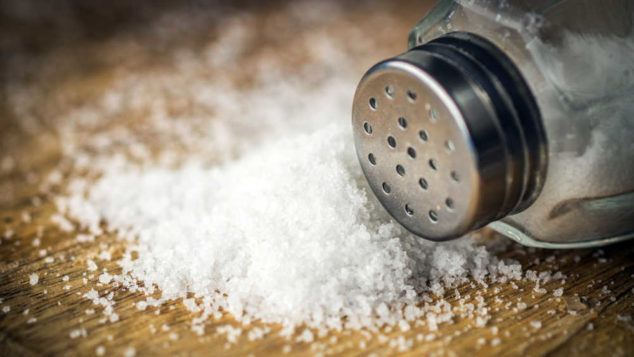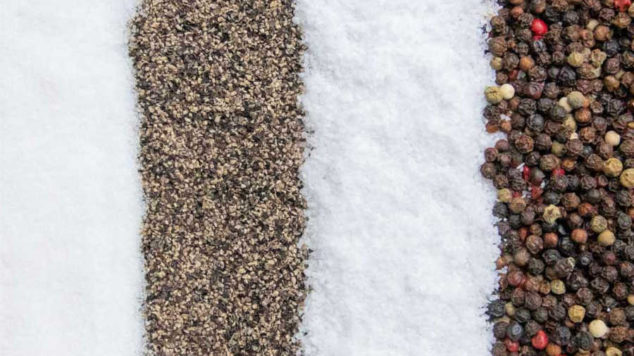The best way to serve eggs to your dog is plain, as a side dish to their regular diet, or as an ingredient in your go-to treat recipe. Don’t share your personal favorite scrambled eggs, which need butter or oil and taste great when you add salt, pepper, or even hot sauce. … Eggs are a great source of protein.
Can Dogs Eat Salt and Pepper?

Your dog may even sneak into your bag of chips when you’re not looking and eat salty foods that you prepare. Is this safe?.
Continue reading if you’ve ever questioned whether dogs can eat salt and pepper. I’ll examine both spices in more detail and respond to whether they are risk-free for your pet.

You should avoid giving your dog too much salt. The best course of action is to refrain from giving your dog any foods with any added salt because it can be difficult to determine how much is too much.
In addition to making your dog extremely thirsty, eating too much salt can also poison your dog with sodium ions.
Anything more than 1. A salt dosage of 5 grams per pound of body weight is regarded as lethal.
According Dr. Tim Watson BVM&S, PhD, MRCVS, “Adult dogs require a daily sodium intake of around 13 mg/kg body weight, which corresponds to a minimum dietary level of 0.2 g/1000 kcal. Requirements are 2-3 times higher in puppies and during pregnancy and lactation, and five times higher in very highly active dogs such as greyhounds or sled dogs.”
Yes, all dogs need some sodium in their diets, but not a lot. Refer to the amounts listed above. You shouldn’t have to do any math, however. Premade dog food contains the ideal amount of sodium if you feed it to your pet.
You should give your dog lots of water to drink if they consumed salty human food or ingested a few salt packets.
Your dog will likely vomit if they consumed a lot of salt, keeping them from becoming poisoned.
Keep a close eye on your dog. You should induce vomiting and contact your veterinarian right away if they didn’t vomit on their own after eating a lot of salt.
Watch out for signs of salt poisoning in your dog. If they consumed too much salt, it would disrupt the blood’s normal salt balance. This could cause hypertension and effect how the kidneys function.
Signs of salt poisoning include:
Do not wait to see if the worst is over. Contact your veterinarian right away if you suspect salt poisoning in your dog. Your dog will receive care from them that you are unable to provide at home.

As long as you control the amount, your dog can consume black pepper. That means they should be fine if they consume food that contains a small amount of pepper, but they shouldn’t eat a lot of black pepper.
Your dog may experience a number of unpleasant side effects from consuming too much black pepper. Although it is not toxic, it can make your dog feel very uncomfortable. If you suspect that your dog consumed too much pepper, be on the lookout for these symptoms:
Call your veterinarian right away if you notice that your dog is having trouble breathing after eating way too much pepper.
Black pepper and peppercorns are the same thing. A small amount is safe for your dog to consume, but too much can result in the problems mentioned earlier.
Avoid letting your dog eat peppercorns alone.

Potential Health Concerns
Let’s start with salt, which is frequently combined with black pepper to create an all-purpose seasoning. Dogs can consume a small amount of salt, but too much salt is harmful. This is why you should refrain from giving your dog foods that are excessively salty, and definitely omit the salt when cooking for your dog.
Black pepper is another seasoning where moderation is key. Large amounts of black pepper can upset a dog’s stomach, even though a small amount is typically regarded as safe for dogs.
Of course, just because dogs can consume small amounts of black pepper probably without harm does not mean they enjoy doing so. Black pepper is a spice that most dogs do not like when used in large amounts. If black pepper spills onto the floor and your dog inhales it, for example, it could give him a very uncomfortable nose ache and cause him to sneeze uncontrollably.
You shouldn’t purposefully add black pepper to any food you prepare for your dog, just like you shouldn’t with salt. Use your best judgment if you want to feed your dog any of your food that contains salt or black pepper. You can probably share a grilled chicken breast with your dog (in moderation, of course) if you’ve seasoned it with a little salt and black pepper. However, it’s best not to feed your dog anything that you are eating, such as a peppercorn-encrusted steak or other food that has been heavily spiced with black pepper.
(Keep in mind that extra food, even healthy food like grilled chicken breast, is not a replacement for a complete and balanced diet for your dog. Less than 10% of your dog’s total diet should consist of treats; the remainder should consist of his regular, complete, and balanced diet. ).
Does Black Pepper Offer Any Health Benefits For Dogs?
Typically, black pepper is added to human food as a seasoning to improve the flavor. Additionally, there are some anecdotal advantages for people, such as improved digestion, antioxidant qualities, and anti-inflammatory effects. Black pepper does not poison dogs in small amounts, but it also does not significantly improve canine health. It’s best to avoid black pepper whenever possible due to the potential side effects of consuming too much of it.
FAQ
What happens if dogs eat salt and pepper?
Your dog will likely vomit if they consumed a lot of salt, keeping them from becoming poisoned. Keep a close eye on your dog. You should induce vomiting and contact your veterinarian right away if they didn’t vomit on their own after eating a lot of salt.
Can my dog eat scrambled eggs with salt & pepper?
If you give them plain scrambled eggs without any additional salt, pepper, or butter, scrambled eggs are acceptable as an occasional treat. This means that you shouldn’t feed your pet your breakfast because it probably contains seasoning that we humans like but that is bad for your pet’s health.
Is pepper harmful to dogs?
Back pepper is among the many seasonings and spices we use that dogs should not consume. If your dog were to consume some black pepper, it wouldn’t be harmful because it isn’t toxic. However, your dog’s digestive system is likely to become upset if they consume a lot of black pepper or whole peppercorns.
What seasonings are toxic for dogs?
- Onion.
- Garlic.
- Salt.
- Cocoa Powder.
- Nutmeg.